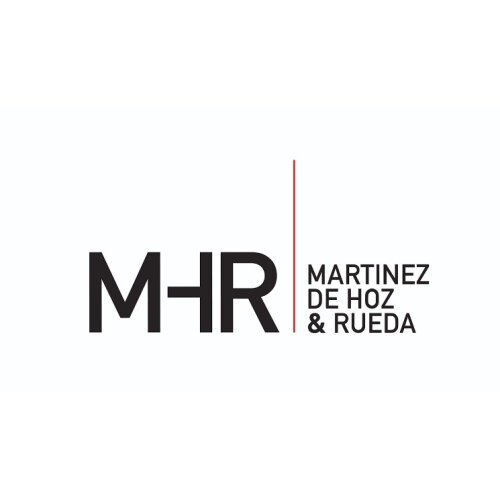Best ADR Mediation & Arbitration Lawyers in Argentina
Share your needs with us, get contacted by law firms.
Free. Takes 2 min.
Or refine your search by selecting a city:
List of the best lawyers in Argentina
About ADR Mediation & Arbitration Law in Argentina
Alternative Dispute Resolution (ADR) in Argentina, including mediation and arbitration, is a legal framework designed to provide efficient and cost-effective alternatives to judicial proceedings for resolving disputes. ADR processes emphasize the autonomy of the parties and confidentiality. Argentina adopted these practices to alleviate the court system and promote amicable conflict resolution. Mediation is often voluntary, although some jurisdictions may require it as a preliminary step in certain cases. Arbitration, on the other hand, is a widely recognized method where an arbitrator’s decision is binding and usually not subject to appeal.
Why You May Need a Lawyer
There are several situations in which a lawyer skilled in ADR might be essential:
- Complex Disputes: Particularly in commercial or international cases, where multi-faceted legal issues are present.
- Drafting Arbitration Clauses: Ensuring that contractual terms are fair and enforceable.
- Representation in Mediation/Arbitration: Advocating for your interests and navigating procedural intricacies.
- Enforcement of Awards: Assisting in the enforcement of arbitral awards, especially in cross-border scenarios.
- Awareness of Procedural Rules: Providing guidance on local laws and procedures, which can be complex and vary by region.
Local Laws Overview
Argentina's ADR framework is largely influenced by international treaties and domestic laws such as the National Civil and Commercial Code. Key aspects include:
- Mediation: Often pre-trial and voluntary, but mandatory mediation might apply in some commercial disputes.
- Arbitration: Governed by the Argentine Civil and Commercial Code and international agreements like the New York Convention.
- Recognition of Awards: Arbitral awards can typically be recognized and enforced, both domestically and internationally.
- Confidentiality and Autonomy: Both processes emphasize confidentiality and allow parties to choose process-specific rules and arbitrators/mediators.
Frequently Asked Questions
1. What is the difference between mediation and arbitration?
Mediation is a facilitated negotiation process where a neutral third party assists the parties in reaching a mutual agreement. Arbitration involves a neutral arbitrator who hears both sides and makes a binding decision.
2. Is mediation mandatory in Argentina?
While mediation is generally voluntary, it may be required in some regions for certain types of cases, such as pre-trial mediation for commercial disputes.
3. Can arbitration awards be appealed in Argentina?
No, arbitration awards are generally final and binding and cannot be appealed. However, they can be challenged in court under limited circumstances, such as procedural irregularities.
4. How are mediators and arbitrators selected?
Parties can mutually agree on the mediator or arbitrator. In case of a disagreement, some institutions or court rules may appoint one.
5. Are ADR proceedings confidential?
Yes, both mediation and arbitration proceedings are confidential unless the parties agree otherwise.
6. Can foreign arbitral awards be enforced in Argentina?
Yes, Argentina is a signatory to the New York Convention, facilitating the enforcement of foreign arbitral awards.
7. What costs are involved in ADR processes?
Costs can vary depending on the process complexity, the professionals engaged, and administrative fees. It often costs less than court litigation.
8. How long do ADR processes usually take?
Mediation can be completed in a few sessions, whereas arbitration might take several months, depending on complexity and parties' schedules.
9. Is the choice of law important in arbitration?
Yes, the applicable law can significantly affect the arbitration outcome, influencing procedural and substantive aspects.
10. Do I need a lawyer for ADR proceedings?
While not mandatory, having a lawyer can offer valuable insights and representation, especially in complex disputes.
Additional Resources
Here are some resources and organizations that can assist with ADR in Argentina:
- Centro de Arbitraje y Mediación (CAM): Offers guidance and resources for arbitration and mediation procedures.
- Argentine Ministry of Justice and Human Rights: Provides information on legal frameworks and ADR legislation.
- Buenos Aires Arbitration Court (CCAC): Specializes in resolving commercial disputes through arbitration.
- Local Bar Associations: Often have specific committees or sections dedicated to ADR practices.
Next Steps
If you require legal assistance in ADR Mediation & Arbitration, consider the following steps:
- Consult an ADR Lawyer: Seek a lawyer experienced in ADR to guide you through your specific situation.
- Research and Prepare: Gather relevant documentation and assess your objectives to discuss with your legal advisor.
- Understand Your Options: With legal counsel, explore voluntary negotiations or formal ADR processes as applicable.
- Proceed with Your Chosen Method: Engage in mediation or arbitration proceedings as advised by your legal representative.
Lawzana helps you find the best lawyers and law firms in Argentina through a curated and pre-screened list of qualified legal professionals. Our platform offers rankings and detailed profiles of attorneys and law firms, allowing you to compare based on practice areas, including ADR Mediation & Arbitration , experience, and client feedback.
Each profile includes a description of the firm's areas of practice, client reviews, team members and partners, year of establishment, spoken languages, office locations, contact information, social media presence, and any published articles or resources. Most firms on our platform speak English and are experienced in both local and international legal matters.
Get a quote from top-rated law firms in Argentina — quickly, securely, and without unnecessary hassle.
Disclaimer:
The information provided on this page is for general informational purposes only and does not constitute legal advice. While we strive to ensure the accuracy and relevance of the content, legal information may change over time, and interpretations of the law can vary. You should always consult with a qualified legal professional for advice specific to your situation.
We disclaim all liability for actions taken or not taken based on the content of this page. If you believe any information is incorrect or outdated, please contact us, and we will review and update it where appropriate.
Browse adr mediation & arbitration law firms by city in Argentina
Refine your search by selecting a city.














